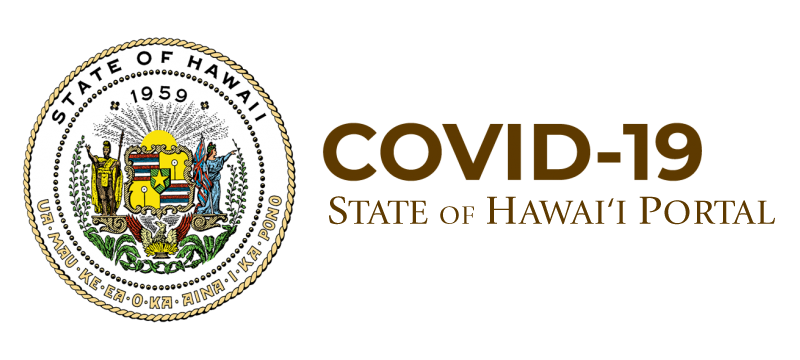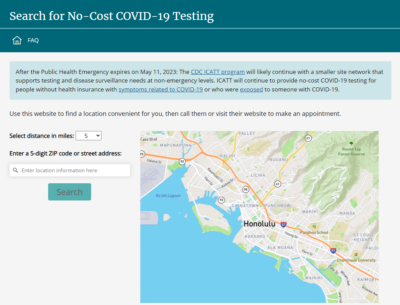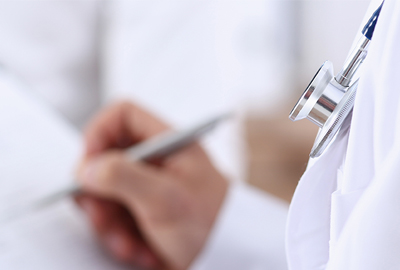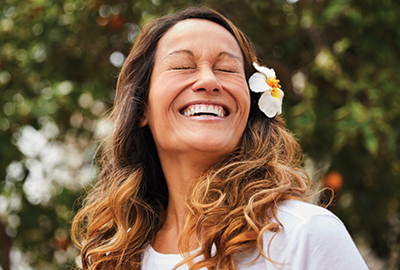Testing & Isolation
If you have COVID-19 symptoms or have been in close contact with a person with COVID-19, get tested 5 days after exposure. You may be infected even if you do not have symptoms.
If you test positive for COVID-19, isolate yourself immediately and follow the guidance on Identifying and Talking to Your Close Contacts and Home Isolation and Exposure Guidance.
Test Sites
Enter your ZIP code here to find a location convenient for you, then call them or visit their website to make an appointment. https://testinglocator.cdc.gov/Search
Please contact a HRSA health center or Test to Treat site near you to learn how to access low- or no-cost COVID-19 tests provided by the federal government.
At-Home Test Kits
Beginning June 1: Ordering through the COVIDtests.gov program has been suspended to preserve remaining supply. The program is no longer accepting orders. All orders placed before 11:59pm PDT on May 31 will be delivered.
In some cases, the expiration date for an at-home test may be extended. Visit the FDA’s At-Home COVID-19 Diagnositc Tests page to see if the expiration date for your at-home COVID-19 test has been extended.
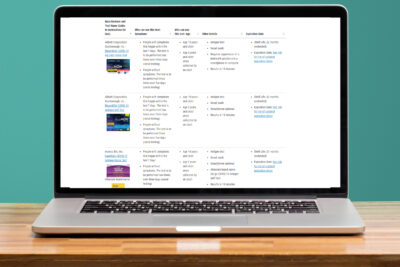
Isolation
You isolate when you have been infected with the virus, even if you don’t have symptoms. COVID-positive patients in isolation must stay home avoid contact with others, and monitor their health.
Whether you are vaccinated or not, you must isolate if you test positive for COVID-19. Most people with COVID-19 have mild to moderate symptoms and do not require a doctor’s appointment or hospitalization.
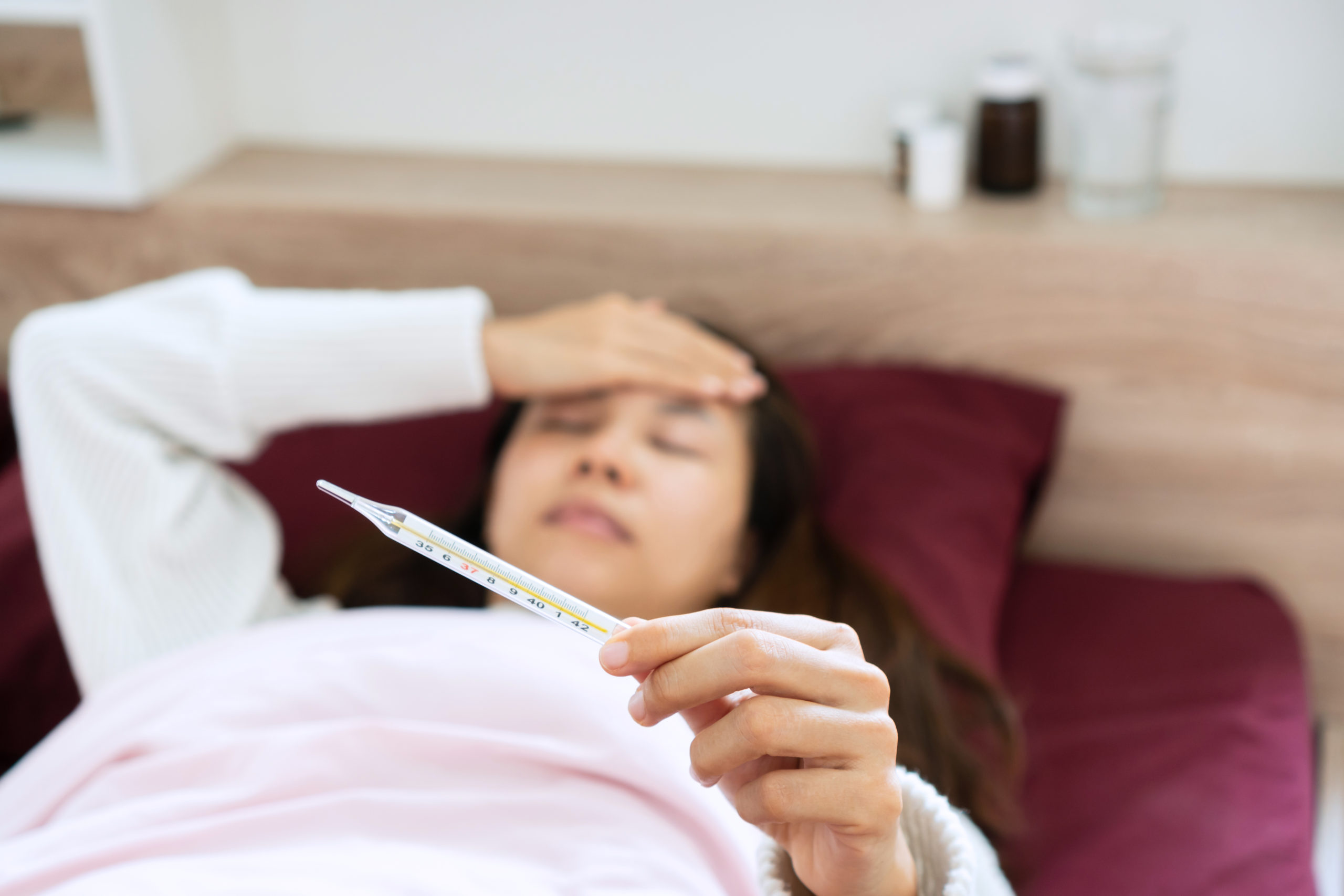
See Home Isolation and Exposure Guidance.
If you are caring for someone with COVID-19 at home, the COVID-19 Home Care Guide has what you need to know.
Key things you need to plan for
- Educate yourself: Find out what you need to care for someone with COVID-19.
- Consider what you already know and do not know about COVID-19 home care.
- Make a list of the supplies and equipment necessary for COVID-19 home care.
- Understand what you need to tell others that have been exposed to you.
- Be a leader in your home. Teach and coach others in your family about COVID-19 home care.
- The first step to start your COVID-19 plan is to review this COVID-19 Home Care Guide.
- Understand when isolation will end.
Recommendations for home isolation setup
- A separate bedroom and bathroom if at all possible
- If bedroom must be shared take these steps:
- Maintain air flow by opening window(s) and turning on fan(s) to circulate fresh air
- Place beds as far apart as possible
- Sleep head to toe (in opposite directions)
- Put a physical divider between beds (such as a shower curtain, room screen divider, large cardboard poster board, quilt, or large bedspread)
- A shared bathroom must be disinfected after use
Supply checklist for home isolation
- Clean facemasks/cloth face coverings for all household members over 2
- Cleaning and disinfecting supplies
- Thermometer to monitor for fever
- Medicines (medicines you would usually take and fever medicines)
When to seek care
- If symptoms worsen or new symptoms develop
- These emergency warning signs signal a need to call 9-1-1 and get immediate medical attention:
- Trouble breathing
- Bluish lips or face
- Pain or pressure in chest
- New confusion or inability to arouse
- New numbness or tingling in extremities
Before an infected person goes to a medical office, emergency room, or urgent care center, please notify the facility in advance that the person has COVID-19 and always wear a face mask.
- Check our Return to Work Guidance.
- Learn more about the requirements for cases and close contacts.
Testing FAQs
COVID-19 Testing and Isolation
When and why should I get tested for COVID-19?
1. You should get tested if you have COVID-19 symptoms even if you are up to date on COVID-19 vaccinations.
2. You should get tested 5 days after you have been in close contact with someone with COVID-19 even if you are up to date on COVID-19 vaccinations.
3. You should get tested if a healthcare provider or the Department of Health recommended you get tested even if you are up to date on COVID-19 vaccinations.
4. If traveling, get tested as close to your departure as possible.
After I come out of isolation, do I still need to wear a face mask?
It is strongly recommended that you wear a face mask for 10 full days any time you are around people inside your home or in public.
If I am a close contact of someone who is infected, should my family members get tested also?
No. Testing is NOT recommended for your family unless you (the close contact) become sick or test positive for COVID-19.
What if you had NO symptoms and got a test?
I did not have symptoms but was tested for COVID-19 because I have been or believe to have been exposed to COVID-19. Is there anything I should be doing while I wait for my results?
If you’ve been in close contact with someone with suspected or known COVID-19, you should get tested 5 days after the exposure.
Take precautions for 10 full days and wear a well-fitted mask any time you are around others inside your home or in public. Do not go to places where you are unable to wear a mask. Avoid travel. Avoid being around people who are at high risk.
I did not have symptoms but was tested for COVID-19 to satisfy a school, work or travel requirement. Is there anything I should be doing while I wait for my results?
If you were tested for COVID-19 to satisfy a school, work or travel requirement you do not need to quarantine while you wait for your results. Continue to follow COVID-19 state and county safety guidelines.
I did not have symptoms or come into contact with a person with COVID-19 but was referred for COVID-19 testing by a healthcare provider (for example, before surgery or a medical procedure). Is there anything I should be doing while I wait for my results?
If you were tested for COVID-19 due to an unrelated medical reason, you do not need to quarantine while you wait for your results.
I did not have symptoms but was tested for COVID-19 and my test is negative. Is there anything I should do?
Remember that a negative test result just means COVID-19 was not detected at the time you were tested—you could still become positive—so it is very important to continue to practice prevention measures, including physical distancing, washing your hands frequently, wearing a mask while indoors and staying home when you feel sick. If you develop symptoms, get re-tested.
I did not have symptoms but was tested for COVID-19 and my test is positive. What should I do now?
Even if you don’t have any symptoms, a positive test requires you to stay home and away from the public for at least 5 days.
Whether you are vaccinated or not, stay home for at least 5 days and stay away from others in your home. Wear a well-fitted mask for 10 full days any time you are around others inside your home or in public. Do not go to places where you are unable to wear a mask for 10 days. Avoid travel and avoid being around people who are at high risk. Monitor your symptoms. If you have a medical emergency, call 9-1-1 and say you have COVID-19. Let your close contacts, employer, and/or school know that you tested positive.
- You may end isolation after ALL of the following are true:
- It has been at least 5 full days since your symptoms started (or since your test date, if you had no symptoms)
- You have had no fever for 24 hours, without taking fever-reducing medications
- Your symptoms are improving
I did not have symptoms when I tested positive for COVID-19, but I developed symptoms during my quarantine period. Do I need to stay in isolation longer?
People can be infectious before they start to show symptoms. The clock does not reset if you develop symptoms during your isolation period. If you develop symptoms, you must remain isolated at home for at least 5 days after you tested positive. You must also stay isolated for at least 24 hours after your fever has resolved without the use of medication AND there is improvement in your respiratory symptoms, such as cough and/or shortness of breath.
What if you HAVE symptoms and got a test?
I have symptoms and just got tested for COVID-19. Is there anything I should do while waiting for my results?
Because you have symptoms, you should still stay home for at least 5 days after your symptoms first appear. You must also wait at least 24 hours after your fever has resolved without the use of fever-reducing medications AND you have improvement in your respiratory symptoms, such as cough and/or shortness of breath.
If you were a contact with a suspected or confirmed case of COVID-19 and you have symptoms, it is recommended that you wear a well-fitted mask for 10 full days any time you are around others.
See the COVID-19 Home Care Guide that explains how to take care of yourself and household members.
I have symptoms and got tested for COVID-19, but my results are negative. Is there anything I should be doing?
If you are symptomatic but have negative test results, you should still stay home for at least 5 days after your symptoms first appear. You must also wait at least 24 hours after your fever has resolved without the use of fever-reducing medications AND you have improvement in your respiratory symptoms, such as cough and/or shortness of breath.
If you were a contact with a suspected or confirmed case of COVID-19 and you have symptoms, it is recommended that you wear a well-fitted mask for 10 full days any time you are around others.
I have symptoms and my test for COVID-19 is positive. What should I be doing?
Whether you are vaccinated or not, stay home for at least 5 days and stay away from others in your home. Wear a well-fitted mask for 10 full days any time you are around others. Do not go to places where you are unable to wear a mask for 10 days. Avoid travel and avoid being around people who are at high risk. Monitor your symptoms. If you have a medical emergency, call 9-1-1 and say you have COVID-19. Let your close contacts, employer, and/or school know that you tested positive.
- You may end isolation after ALL of the following are true:
- It has been at least 5 full days since your symptoms started (or since your test date, if you had no symptoms)
- You have had no fever for 24 hours, without taking fever-reducing medications
- Your symptoms are improving
Refer to the COVID-19 Home Care Guide for instructions.
For more information, please visit: https://www.cdc.gov/coronavirus/2019-ncov/if-you-are-sick/isolation.html
